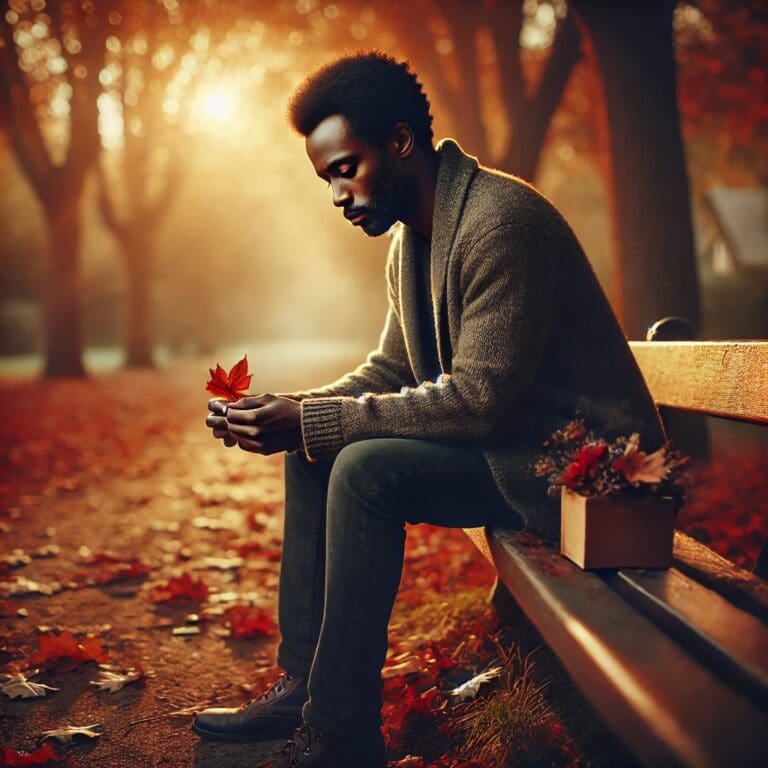The Weight of Loss: When Grief Feels Numb
Family. It’s a word that’s always felt a bit tangled for me. Most of those I call family aren’t bound by blood. I often joke about getting older, how the kids are growing up faster than me. But the truth is, it’s not just the kids who change. It’s everyone around us, including ourselves.
For reasons I’ve opened up about before, grief and I have never been on good terms. In many ways, I’ve felt oddly numb to death, even when those I loved deeply slipped away. I’ve often wondered, “What’s wrong with me? Why don’t I feel the way I’m supposed to?” I made a strange sort of deal with death: if it kept knocking at my door, I wouldn’t give it the satisfaction of my tears. Maybe, if I starved it of my sorrow, it would just give up.
But instead, it was me who withered away. My compassion evaporated like morning dew, understanding became a maze I couldn’t navigate, and empathy? Well, let’s just say it took a back seat.
Shortly after I moved to Ohio, a death that should have shaken me to my core barely registered. Now, don’t get me wrong—I was hurt, but I didn’t know how to show it. I dove headfirst into supporting others, but when I came home, I felt… hollow.
Untangling the Threads of My Grief:
- Pushing It Down: I wasn’t processing grief, I was burying it under a mountain of other messy emotions.
- Death’s Familiar Face: Death has been a shadow in my life since I was just a baby. It became so commonplace that each loss felt less like a gut punch and more like a dull ache—painful, yes, but fleeting.
- The Grief Stopwatch: I put a time limit on my sadness, convincing myself that those who were gone wouldn’t want me to mourn. Maybe that’s true, but what they truly wanted was for me to be healthy, and this certainly wasn’t it.
When Everything Unraveled:
During the COVID-19 lockdowns, my carefully constructed wall of indifference finally crumbled. Trinity, my beloved cat, passed away. She was more than just a pet; she was a lifeline. Whenever I felt myself slipping, the thought of her would pull me back from the edge.
When she died, everything fractured. I grieved not only for her, but for every loss I could dredge up from my memory. Fear also crept in—if Trinity couldn’t stay, how was I supposed to?
It became clear: I had to learn how to live for myself. It wasn’t easy then, and it’s still a work in progress.
Now, some of my childhood friends are facing the unimaginable pain of losing their parents. It’s a heartache I wouldn’t wish on anyone. We all know it’s coming, but that doesn’t make it hurt any less.
Finding My Way Through the Grief
Outside of talking to my therapist weekly (which I highly recommend!), I have a few things I do now to help me move through grief.
- Acceptance: Whatever the circumstances were with the person I lost, I had to come to terms with them. I can’t beat myself up for things I can no longer change or dwell on unsettled business. If I never said or heard “I’m sorry” or “I love you,” it’s too late for that face-to-face exchange. But I’ve found that talking out loud as if I were talking to them helps, or writing a letter. Another part of acceptance, especially with complicated relationships, is realizing that my feelings are valid and have always been mine to understand. I can’t control how I feel, but I can control how those feelings influence my actions.
- Zigzagging Through It: Healing the heart isn’t like healing the body. There will be days when the pain is so heavy you can barely stand, and other days when you may not think about it at all. Grief doesn’t follow a set path; you can bounce around the stages. It’s not linear.
- Express Yourself: Cry. Scream. Meditate. Bake. Find a way to express your grief that feels right for you and doesn’t harm anyone else. Make or get their favorite food or meal. Watch a movie they loved.
- Remember: Memories can be painful, but they can also remind us of all the love that was shared. What if you don’t have good memories? Coming from an abusive past, I know it’s hard to grieve someone who hurt me deeply. In those cases, I try to lean into understanding. While that knowledge doesn’t erase anything they’ve done, it helps me reconcile their death in my mind.
If you’re hurting, please know this:
You are not alone. I am here. I see your pain, and I will grieve with you.
Resources for Grief and Healing:
- The Dougy Center: (https://www.dougy.org/) A national organization that provides support and resources for grieving children, teens, young adults, and their families.
- GriefShare: (https://www.griefshare.org/) An online grief support program with videos, discussion groups, and personal study exercises.
- What’s Your Grief?: (https://whatsyourgrief.com/) A website with articles, resources, and a supportive community for people experiencing all types of grief.
- The Grief Recovery Method: (https://www.griefrecoverymethod.com/) A program that provides a structured approach to healing from loss.
- Hospice organizations: Many hospices offer grief support groups and counseling services to the community.
- Community centers: Some community centers offer grief support groups or workshops.
- Therapists and counselors: Individual therapy with a mental health professional can be immensely helpful for processing grief.
- Support groups: Connecting with others who are grieving can provide comfort and validation. You can find grief support groups through hospitals, hospices, community centers, or online platforms.
Remember, healing takes time and there’s no right or wrong way to grieve. Seek out support, be kind to yourself, and allow yourself to feel whatever you’re feeling.
